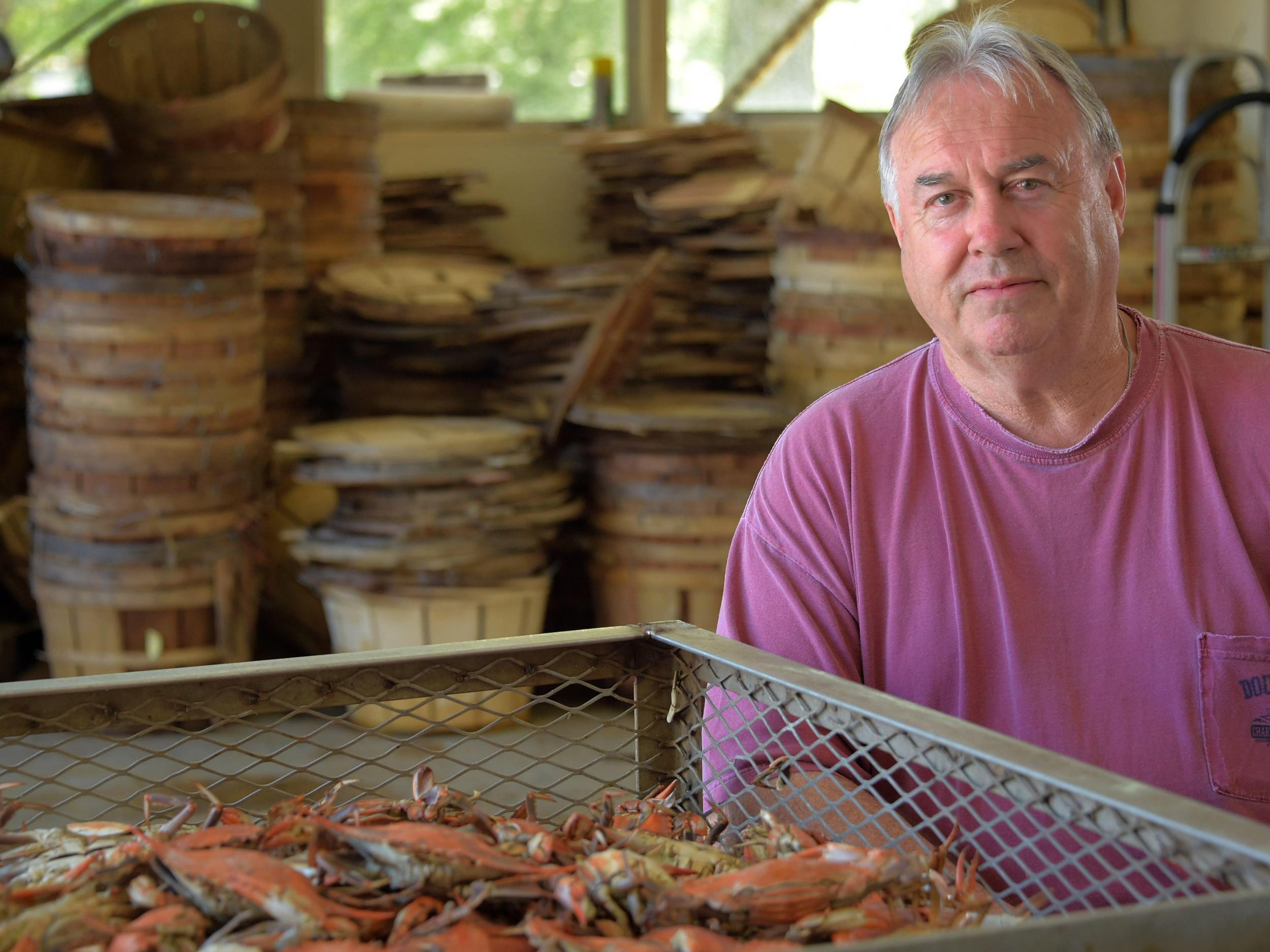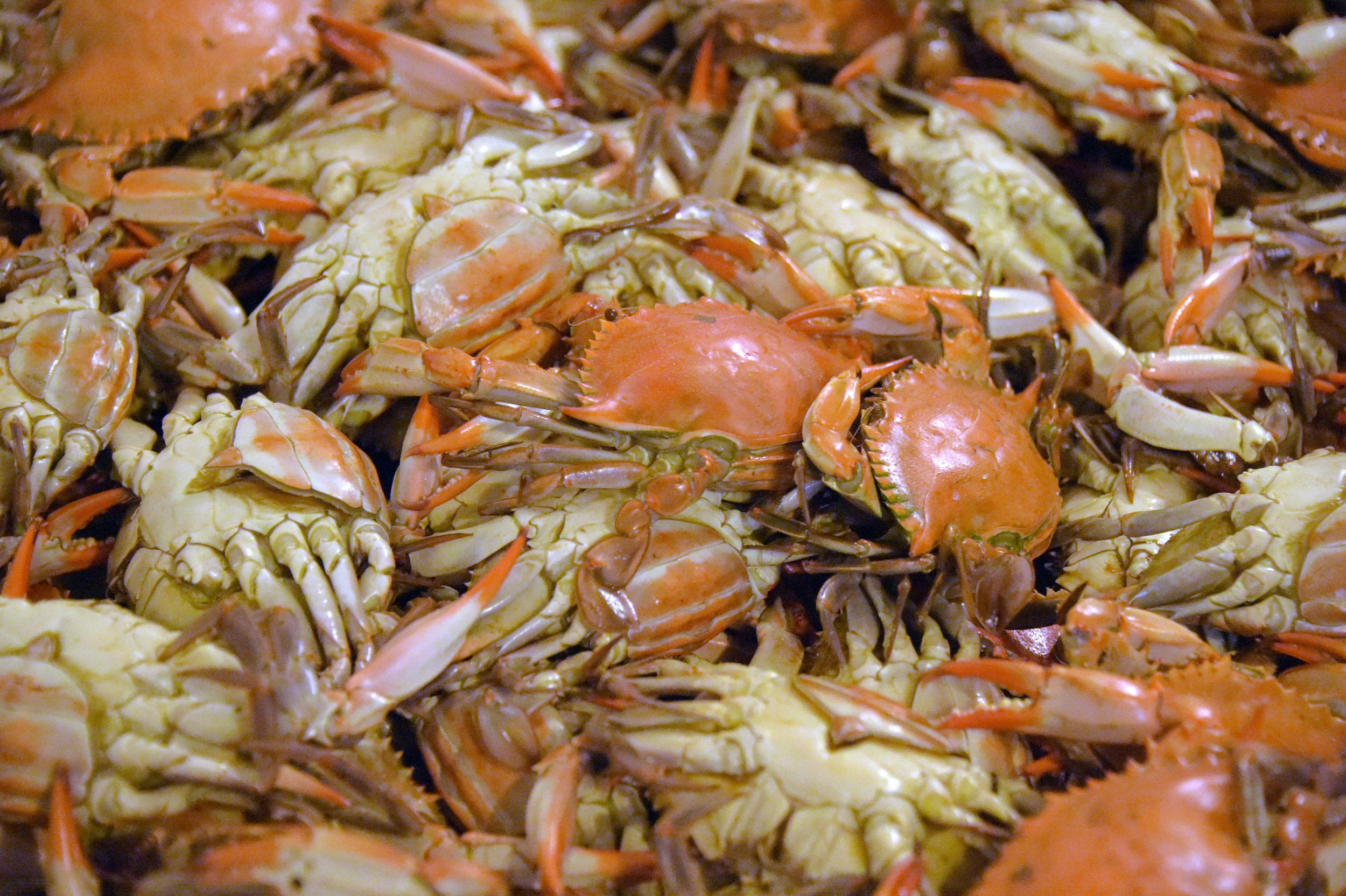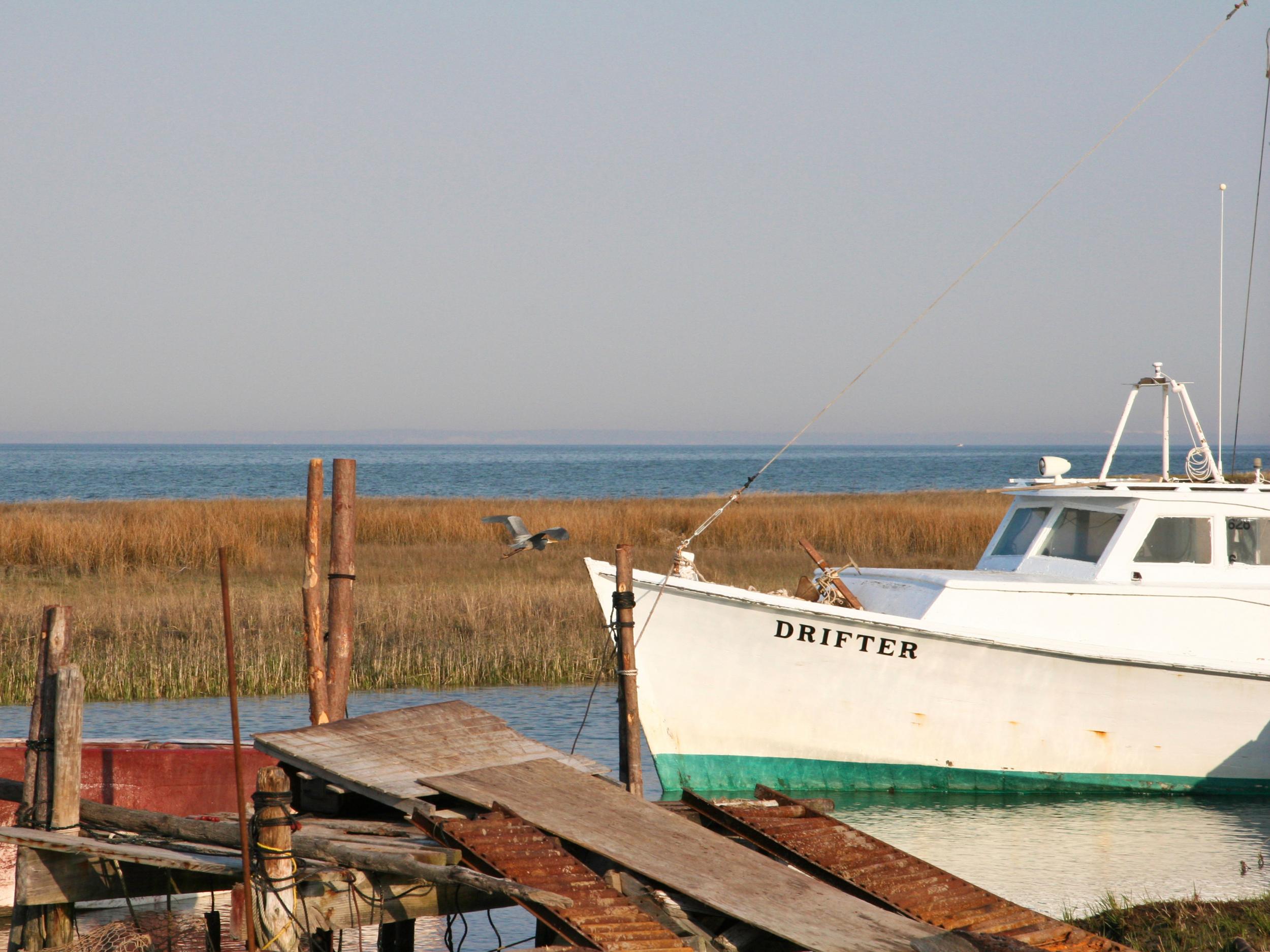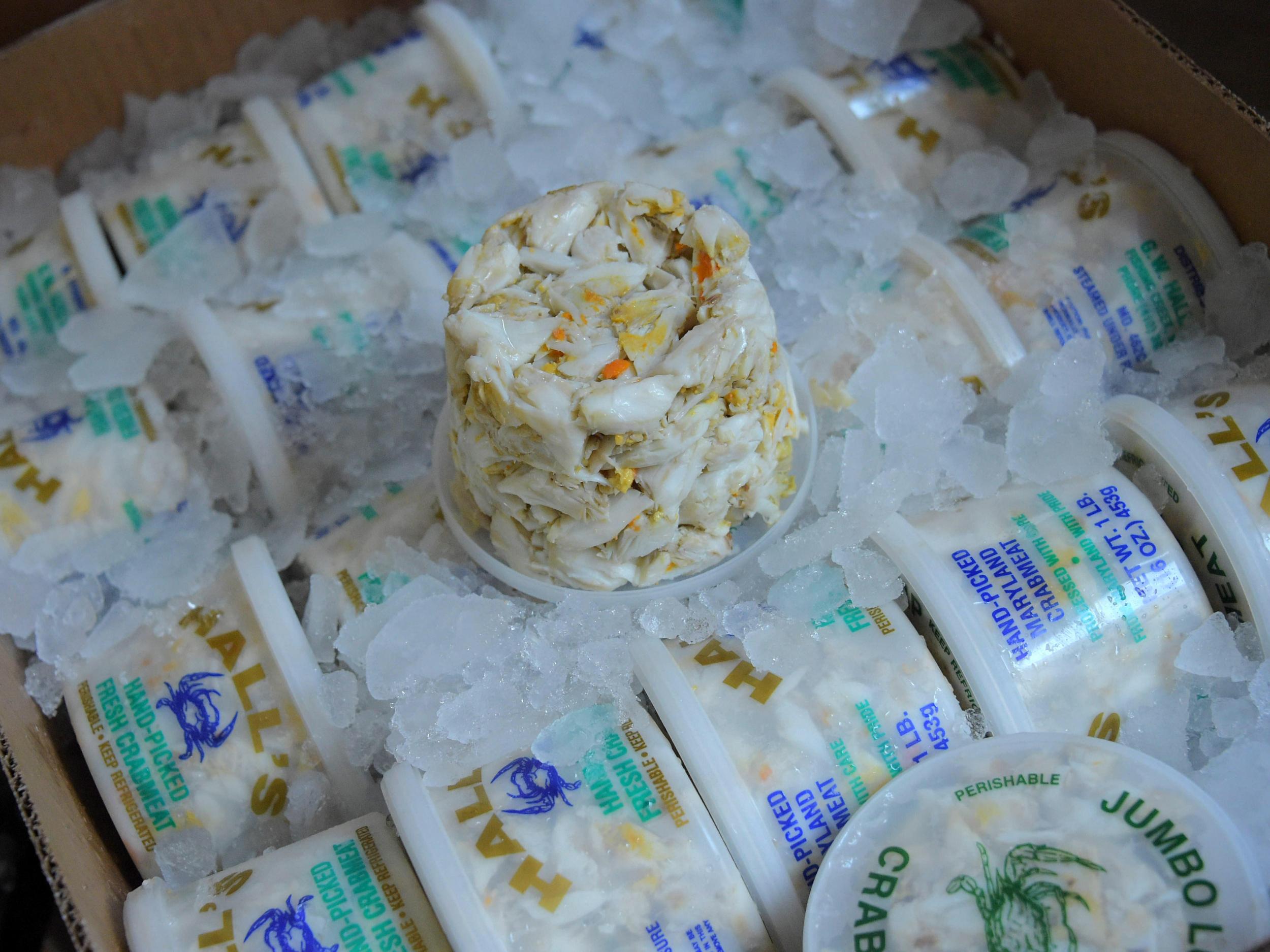Trump's tighter immigration restrictions causing 'crab crisis' in Maryland
In a remote Maryland coastal town, Trump’s clampdown on seasonal visas has been disastrous for the crab industry. But fishermen won’t blame the president

Your support helps us to tell the story
From reproductive rights to climate change to Big Tech, The Independent is on the ground when the story is developing. Whether it's investigating the financials of Elon Musk's pro-Trump PAC or producing our latest documentary, 'The A Word', which shines a light on the American women fighting for reproductive rights, we know how important it is to parse out the facts from the messaging.
At such a critical moment in US history, we need reporters on the ground. Your donation allows us to keep sending journalists to speak to both sides of the story.
The Independent is trusted by Americans across the entire political spectrum. And unlike many other quality news outlets, we choose not to lock Americans out of our reporting and analysis with paywalls. We believe quality journalism should be available to everyone, paid for by those who can afford it.
Your support makes all the difference.There’s something new that has reached this desolate, weathered chain of Chesapeake Bay islands, and it’s starting to choke the watermen’s way of life.
It’s fear.
And that fear is endangering the centuries-old ecosystem around the crab business on these islands.
Nearly half of the Eastern Shore’s crab houses have lost the temporary workers, mostly from Mexico, who come every season to pick crabs, The Baltimore Sun reported last week. The businesses couldn’t get visas for the crab pickers because the Trump administration awarded them by lottery this year, instead of on a first come, first served basis.
Just one month into crabbing season, everyone here is feeling it. The guy who builds the crab pots, the bait fishermen, the crabbers, the crab house suppliers, the little roadside crab shack, the local general store, the waterman’s wife who can’t afford to stay home with the kids anymore – all of them are in trouble thanks to the fear of immigrants that helped elect President Trump and is now shaping the administration’s hardline approach towards legal and illegal immigration.
For the most part, though, the very folks in trouble on the Eastern Shore refuse to see the connection.
If the president could just come and see what’s happening to American workers, he could see it right here, the effects of all this
“There are different sides to it.”
“Finger-pointing won’t help.”
“Immigration has to be legal.”
“He’s the best president we’ve had in a long time.”
Those are all things that residents of this enclave say when I ask them about the anti-immigration policies damaging their livelihoods.
Here’s the problem. The administration isn’t taking aim at just undocumented immigrants. The knee-jerk, simplistic, shut-it-down, build-that-wall approach to the complex issue of immigration is also affecting workers who have been legally coming to the United States and are an integral part of our economy.

Harry Phillips, owner of Russell Hall Seafood, understands that. Like his neighbours, he voted for Trump and supports him. But he believes the president has been misinformed on the seasonal H-2B worker visas and would see the devastating results in one quick visit to the island.
“We’re 15 minutes away from Washington by helicopter,” says Phillips, whose crab house was quiet Sunday morning, with empty bushel baskets stacked high because the crab pickers aren’t coming. “There’s a landing pad for the helicopter, and we would welcome him here. If the president could just come and see what’s happening to American workers, he could see it right here, the effects of all this.”
Phillips is frustrated that his neighbours don’t see the connection as clearly as he does.
“People are disappointed,” he says. “They don’t want to blame him. But he’s the man, the man in charge, and I think they just don’t understand.”
The frenetic and unthinking clampdown on the seasonal visas has been disastrous for Maryland’s fragile and beloved blue crab industry. These temporary workers are the key to survival for the crabbing industry in the lower Chesapeake region.
Higher up on the bay are the fat number one crabs, the blue big boys you get steamed and then bash with wooden hammers at crab feasts and at waterfront restaurants.
People are disappointed. They don’t want to blame him. But he’s the man, the man in charge, and I think they just don’t understand
That part of the crab industry is doing fine, thank you.
But lower on the bay, where herons hang out alongside the roads and crabbers have pots piled high on their front yards, the catch is smaller crabs and females. These are the beauties used in those famous Maryland crab cakes.
And for decades, Mexican workers have kept the industry here afloat by doing the picking.
“We depend on the Hispanics,” explains Phillips, who has been bringing Mexican workers to Dorchester County since 1992. “They’re the ones keeping us in business. No American people are going to do this job. We’ve tried.”
The industry is choking without its temporary workforce.
“We’ve never seen it like this,” says Denise Lewis, 44, from behind the counter at Hoopers Island General Store. “For 25 years, I’ve been a waterman’s wife. And this paid for our home. Our cars. Our kids. But he’s not selling bait. And I had to find work.”

Her husband is a pound netter. He’s the one who catches the bait fish to sell to crabbers. But crabbers aren’t buying, so he’s not selling.
Lewis found a job at the local general store. But that place is also hard-pressed to give her the hours she needs. Business has dropped because the watermen stopped coming in for sandwiches, slices of hummingbird cake, the odd wrench or new pairs of crabbing boots.
Drive down the long, thin island and you’re surrounded on both sides by water and crabbing. Marinas, boats, stacks of crab pots, woodcuts of blue crabs on mailboxes and front porches.
The guy who makes and sells crab pots is also hurting. Bill Meredith, 58, was loading up a truckload of used pots he bought this weekend because the crab pot guy was selling them at a deep discount.
“It’s a risk. Because I don’t know how many crabs I’m going to be able to sell,” says Meredith, who lives in Salisbury and crabs closer to Ocean City. “But I’m just going to go ahead and keep crabbing. Hoping for the best. If you cut the pickers, you cut the business. But we’re hoping some pickers come.”
Why does he think this is happening?
Finger-pointing isn’t going to help. It’s really all of them in Washington on the immigration issue
“Politics,” he says.
But he doesn’t blame Trump. Meredith voted for him, along with most residents of Dorchester County.
“He’s the only one looking out for the small guy,” Meredith says.
So who does he think is responsible for the crab picker crisis?
“Oh, that’s all the environmentalists,” he says. “This is how they want it. The Chesapeake Bay Foundation did all of this. They want us to stop crabbing.”
I check in with the foundation, which lobbies for the health and restoration of America‘s largest estuary.

“We are all about reducing pollution and restoring water quality,” says the foundation’s spokesman, John Surrick. “We have done no work on immigration or the H2B visa status.”
So I ask Lewis, the friendly waterman’s wife who works in the general store. She doesn’t think Trump is to blame, either.
“Finger-pointing isn’t going to help,” she says. “It’s really all of them in Washington on the immigration issue.”
Representative Andy Harris says the administration has agreed to approve 15,000 more visas this week. But Phillips says those will be lottery-based again.
“I’m not a gambler. But now my business is based on a gamble,“ Phillips says, sitting in his office at sunrise, out of habit. The dock outside his plant is empty. His trucks are lined up in the parking lot, idle. The blue herons aren’t spooked in the quiet. They just look back at Phillips and his empty building.
© The Washington Post
Join our commenting forum
Join thought-provoking conversations, follow other Independent readers and see their replies
Comments